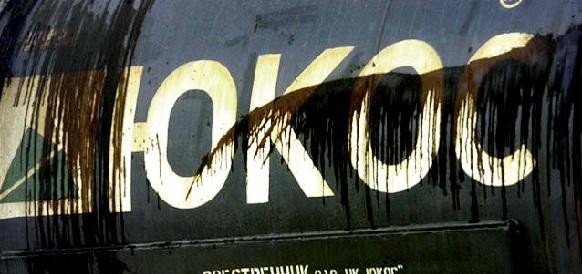
RUSSIAN OIL MURDERS

Russian investigators want to question former oil tycoon Mikhail Khodorkovsky over a 1998 murder in Siberia, after uncovering what they said is new evidence suggesting he ordered the killing, a government spokesman said Tuesday.
Mr. Khodorkovsky suggested the investigation was political. Mr. Khodorkovsky, once head of the now-defunct Yukos oil company is now one of Russian President Vladimir Putin's fiercest critics, after serving a 10-year prison term for financial crimes and leaving Russia in 2013.
In a tweet, he suggested the Kremlin is retaliating for his criticism and for pressing a $50 billion arbitration-court judgment in The Hague over the Kremlin's dismantling of his oil company. The judgment has been an embarrassment to Moscow, which confirmed in June that Belgium and France have frozen some Russian assets to enforce the ruling. At the time of the ruling, Russia's Finance Ministry called the court decision "seriously flawed" and "politically biased."
Russia's top investigative body, the federal Investigative Committee, said on its website Tuesday that it wants to question Mr. Khodorkovsky about the murder of Vladimir Petukhov, the mayor of the Siberian city of Nefteyugansk, where Yukos had its biggest oil-production unit.
Mr. Petukhov had been pressing the Kremlin to investigate Yukos for failing to pay taxes to the city, which was then starved for revenue. He was gunned down while walking to work on June 26, 2008. A top aide to Mr. Khodorkovsky, a chief of security for Yukos, was convicted of Mr. Petukhov's murder.
Mr. Khodorkovsky has never been charged in the case, but a spokesman for the Investigative Committee, Vladimir Markin, said Tuesday that officials had turned up new information that he may have ordered the killing and been responsible for a number of other crimes. In a statement published on the committee's website, Mr. Markin said officials likely would need to speak to Mr. Khodorkovsky as a witness or a suspect.
"I don't think his absence from Russia will be an insurmountable obstacle to carrying out all the necessary investigative actions," Mr. Markin said.
A lawyer for Mr. Khodorkovsky wasn't immediately available to comment, but according to the Interfax news agency, his lawyer Vadim Klyuvant called Mr. Markin's statement "fantasy and speculation." In a tweet, Mr. Khodorkovsky asked, "Is this a reaction to The Hague implementation or my articles on the future of Russia after Putin?"
Mr. Khodorkovsky, who acquired Yukos during controversial Russian privatizations during the 1990s, ran into legal problems after clashing with Mr. Putin early in his presidency. He was arrested in 2003 and convicted of theft and tax evasion in 2005.
The Kremlin denies punishing Mr. Khodorkovsky for political reasons, and in 2013 Mr. Putin pardoned him and he was released from prison.
Mr. Khodorkovsky moved abroad after his release, but has sued Russia for dismantling his oil company. Last year, an international arbitration court ruled that Russia must pay $50 billion for expropriating Yukos's assets. Russia has said it won't comply, and in June threatened to retaliate against European-controlled companies in Russia after Belgium and France froze some Russian assets.
wsj.com



